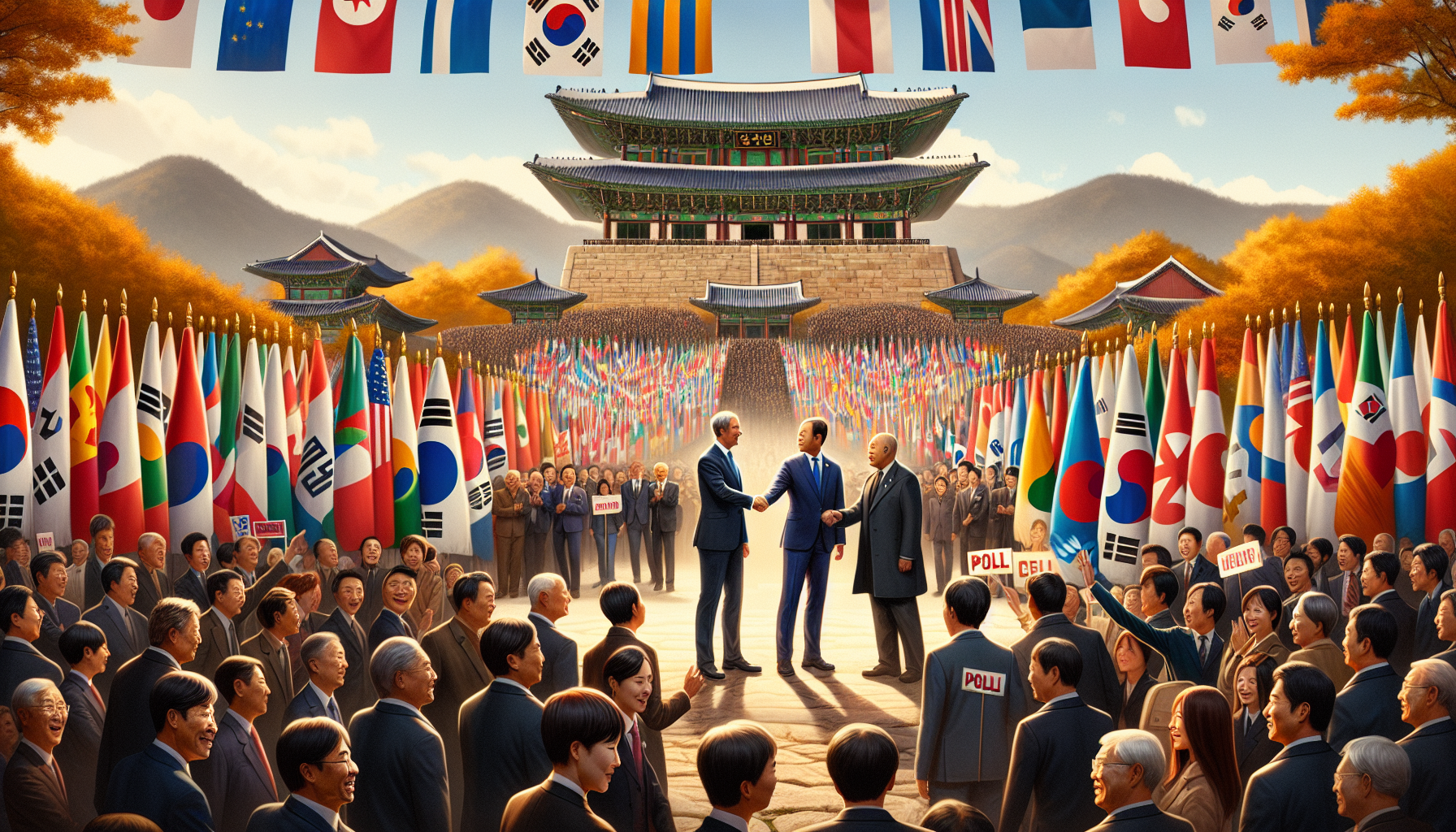A Korea Times-commissioned poll shows South Koreans expect the Asia-Pacific Economic Cooperation (APEC) summit in Gyeongju to boost diplomatic prestige and cultural promotion. Many view the Trump-Xi meeting as key to easing trade tensions, with potential gains for the Lee government. Yet, concerns persist that without tangible economic results, the event could backfire.
A poll commissioned by The Korea Times and conducted by Hankook Research from October 24 to 25, 2025, surveyed 1,004 adults nationwide (margin of error ±3.1%, 95% confidence level), revealing high public expectations for the Asia-Pacific Economic Cooperation (APEC) summit in Gyeongju. The event, themed 'Building a Sustainable Tomorrow: Connect, Innovate, Prosper,' will gather leaders from 21 member economies in Gyeongju, North Gyeongsang Province, from October 29 to November 1, including the CEO Summit and Economic Leaders' Meeting.
Expectations centered on the Trump-Xi summit, with 30% viewing U.S. President Donald Trump's visit as meaningful for easing global trade tensions amid U.S.-China tariff disputes and rare earth export controls. Another 27% anticipated progress in stalled Korea-U.S. tariff talks, targeting a 15% U.S. tariff on Korean goods and a $350 billion investment commitment. Eighteen percent hoped for advances in Korean Peninsula security, such as inter-Korean dialogue or U.S.-North Korea relations. However, 18% saw limited significance in Trump's visit due to his skipping the main Economic Leaders' Meeting, a view held by 25% of conservatives versus 10% of liberals.
For Chinese President Xi Jinping's visit—his first to Korea in 11 years—41% interpreted it as countering the U.S. and expanding influence over middle powers, while 20% deemed it insignificant beyond hosting duties. Only 14% expected it to ease Korean Peninsula tensions or revive denuclearization talks.
Nearly 58% believed the summit would benefit the Lee Jae Myung administration, with 30% citing strengthened diplomatic standing as a mediator and 28% predicting higher global prestige and approval ratings. Yet, 23% warned of backlash without tangible economic outcomes, labeling it 'event-driven diplomacy.' Progressives (over 80%) were optimistic, while 44% of conservatives foresaw potential failure.
Eighty-five percent anticipated enhanced global recognition for Gyeongju, a former Silla Kingdom capital with UNESCO sites, through cultural promotion (28%) and regional development (24%). Memorable aspects included Gyeongju's historic sites and traditional culture (43%), high-tech venues (25%), Korean cuisine (15%), and industrial tours (14%). Diplomatic prestige (25%), cultural influence (22%), and democratic resilience post-2024 martial law (18%) were also highlighted. Awareness remained low, with only 41% claiming strong familiarity with APEC.
Gyeongju integrates tradition with innovation, featuring media art exhibitions at ancient tombs, Silla artifact displays, and technologies like AI translation devices, autonomous shuttles, and adaptive lighting at venues.

